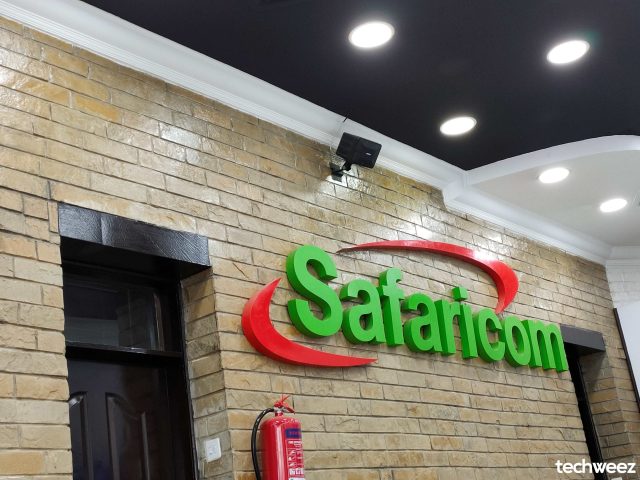
Kenya’s top Communication company Safaricom has rolled out a new payment service that allows customers to pay for goods and services using mobile data.
The new service tagged ‘Lipa na Data’, allows Safaricom’s postpaid users with a data balance of 5GB and above, to make payments for goods and services. Additionally, this service is also accessible to prepaid users with no expiry bundles above 5GB.
Users will be required to dial *544*34# through their Safaricom line and will then be prompted to pay the amount keyed in via till numbers or pay bills.
Register for Tekedia Mini-MBA edition 19 (Feb 9 – May 2, 2026): big discounts for early bird.
Tekedia AI in Business Masterclass opens registrations.
Join Tekedia Capital Syndicate and co-invest in great global startups.
Register for Tekedia AI Lab: From Technical Design to Deployment (next edition begins Jan 24 2026).
On dialing the payment request code, the bundle calculator gives the bill in Kenya shillings in its data bundle equivalent and prompts the user to either agree or decline to proceed with payment.
For example, 500 Megabytes of Mobile data, is equal to 32.50 Shillings, and 2,000 shillings is equal to 30,769.23 MBs (30.8GB).
However, this service does not allow users to proceed beyond the dialing code, in the event that one does not have the threshold of the required data balance. They will receive a feedback message saying, “You are not eligible for this service”.
Safaricom has continued to hold a firm grip on its existing customers, also amassing more customers through the rollout of its new services and the expansion of product offerings to address customers’ needs.
The telco giant has also recently embarked on an aggressive revenue optimization drive. Among the most notable moves are expanding the fifth generation (5G) network coverage to Kenya’s 21 countries in April, and introducing the Fuliza overdraft service for businesses last month.
Notably, Safaricom controls approximately 64.5% percent of the Kenyan market as of 2020 with a subscriber base estimated at approximately 35.6 million. In terms of voice market and SMS market share, Safaricom controls 69.2% and 92.2% respectively.
Safaricom’s Dominance in Kenya
Formed in 1997, Safaricom has revealed that it exists to transform lives. The telecommunications giant believes that the role of business extends far beyond making profits, which is why the company sees mobile telecommunications and its related products and services as a unique opportunity to improve the quality of life and contribute to sustainable livelihoods for people in Kenya and beyond.
The company has continued to contribute greatly to the Kenyan economy. In the year ended March 2020, the company added KES. 654 billion to the Kenyan economy, an equivalent of 6% of the country’s GDP, cementing its position as the single largest contributor to the economy.
In the same year, the company paid over KES. 110 billion in taxes, and registered over KES. 71 billion in profits.
Safaricom was ranked as Africa’s Best Employer, 67th in the World by the Forbes Global 200 list of the World’s Best Employers. As of 2020, Safaricom was reported to have employed over 4,500 people permanently and over 1,900 people on contract.
In March 2018, the company was ranked as the number one company to work for in the annual BrighterMonday Best 100 Companies to Work for in Kenya according to career professionals and job seekers.
Growth of Safaricom’s Fintech Platform M-PESA
In 2007, Safaricom launched its fintech platform M-PESA, a mobile phone-based money transfer, financing, and micro-financing service. M-PESA was originally designed as a system to allow microfinance-loan repayments to be made by phone, reducing the costs associated with handling cash.
After the pilot testing, it was broadened to become a general money-transfer scheme. Since then Safaricom M-PESA brand has reached 12 countries in Africa and three countries outside the continent.
It provides services to more than 51 million customers every month. It also has a wide range of financial services including Person to Person, ATM withdrawal, Payments, Bulk Payments, and Bank to M-PESA.
The fintech platform has quickly captured a significant market share for cash transfers and grew to 17 million subscribers by December 2011 in Kenya alone.
The growth of M-PESA reportedly forced formal banking institutions to take note of the new venture. As of November 2014, M-PESA transactions for the 11 months of 2014 were valued at KSh.2.1 trillion/=, a 28% increase from 2013, and almost half the value of the country’s GDP.
The Communications Commission of Kenya reported in September 2021 that there were 29.1 million M-Pesa customers in Kenya, making up 63% of the population. According to the research, Kenyans used M-Pesa to do business worth KSh 5.1 trillion (about $47 billion) in the three months ended in September 2021.
The development of M-Pesa has also aided Kenya’s economic expansion. An analysis by the World Bank found that since M-Pesa in 2007, it has contributed 2 percent to Kenya’s GDP. According to the research, M-Pesa creates 185,000 employees in Kenya.
Notably, as a result of M-popularity Pesa’s in Kenya, it has been introduced to other markets such as Tanzania, Mozambique, India, and Romania.



